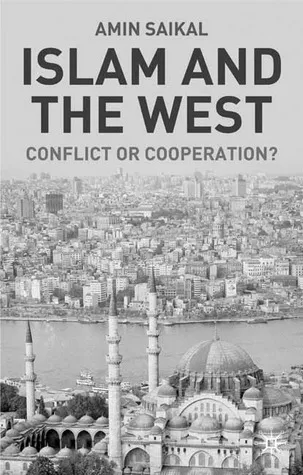Islam and the West: Conflict or Cooperation?

Navigating the Crossroads of "Islam and the West: Conflict or Cooperation?"
A Scholarly Exploration of Cultural Crossroads
In the vast sea of literature exploring the relationship between Islam and the West, Amin Saikal's "Islam and the West: Conflict or Cooperation?" stands out as a beacon of insightful analysis. As someone who has always been intrigued by the intersections of cultures and religions, delving into this book was both enlightening and thought-provoking.
A Personal Prelude
Before we embark on the exploration of Saikal's work, let me share a personal anecdote. Growing up in a multicultural neighborhood, I witnessed the beauty of diversity but also sensed the occasional undercurrents of misunderstanding. It fueled my curiosity about the complex dynamics between Islam and the Western world, making "Islam and the West" a natural addition to my reading list.
Decoding the Narrative
Breaking Down Stereotypes
One of the book's strengths lies in its ability to dismantle stereotypes surrounding Islam and the West. Saikal meticulously dissects historical events, political landscapes, and cultural nuances to reveal the multifaceted nature of this relationship.
Personal Reflection: Reading through the chapters, I couldn't help but recall instances when conversations around me oversimplified the intricate dynamics between these two worlds. Saikal's work serves as a compass, guiding readers away from generalizations and towards a more nuanced understanding.
Historical Context: Seeds of Understanding
Saikal takes readers on a journey through history, unraveling the threads that weave together the narrative of Islam and the West. From the medieval period to the contemporary era, the book provides a comprehensive overview of the historical forces that have shaped the relationship.
Personal Insight: My interest in history was piqued during a visit to the Alhambra in Spain, where Islamic and Western architectural influences harmoniously coexist. "Islam and the West" deepened my appreciation for the historical roots of such cultural convergences.
Challenges and Opportunities
The Politics of Cooperation
The book doesn't shy away from addressing the challenges that have fueled conflicts between Islam and the West. Saikal critically examines political decisions, economic disparities, and ideological clashes that have strained relations. However, he also highlights instances of cooperation and shared interests that often go unnoticed.
Personal Experience: Working in a global setting, I've witnessed collaborative efforts that transcend cultural boundaries. Saikal's exploration of cooperation between Islamic and Western nations resonated with my firsthand experiences of joint initiatives addressing common challenges.
Bridging the Gulf of Misunderstanding
Amin Saikal advocates for fostering understanding and dialogue as essential tools for bridging the gulf of misunderstanding. By unraveling the layers of misperceptions, he encourages readers to appreciate the shared values and aspirations that can form the basis for cooperation.
Personal Anecdote: Attending an intercultural dialogue event, I saw how open conversations could dissolve preconceived notions. Saikal's emphasis on dialogue echoed my belief in the power of communication to build bridges between diverse communities.
The Final Chapter: Seeking Common Ground
As "Islam and the West: Conflict or Cooperation?" reaches its conclusion, Saikal leaves readers with a call to action. The book challenges us to question assumptions, engage in meaningful conversations, and actively seek common ground.
In a world often marked by headlines of division, Saikal's work serves as a guide for those navigating the crossroads of Islam and the West. It is a reminder that, beyond the conflicts that make the news, there exists a vast terrain of potential cooperation and understanding waiting to be explored.
So, if you find yourself curious about the intricate dance between these two worlds, "Islam and the West" offers a compelling roadmap for the journey.